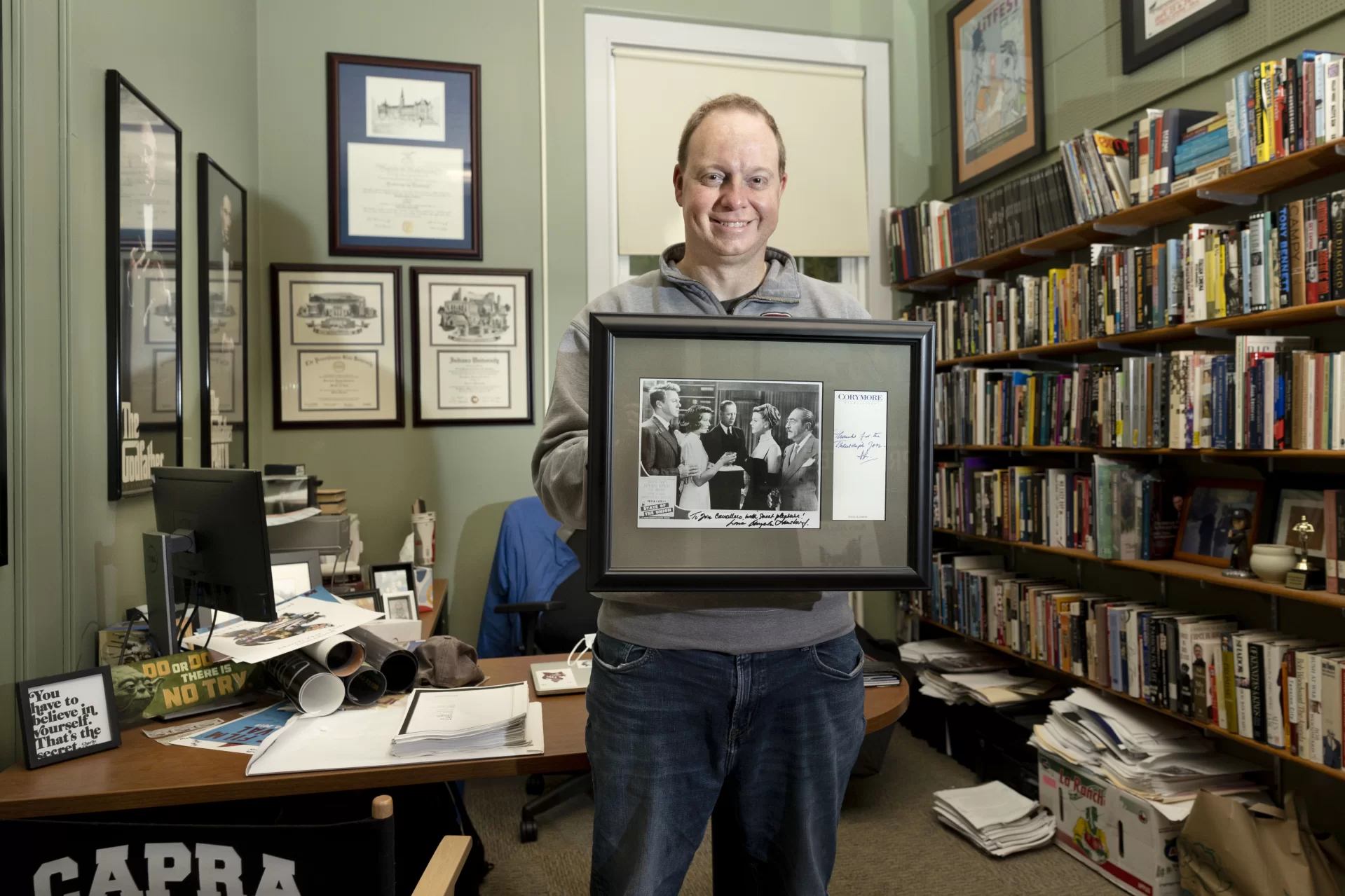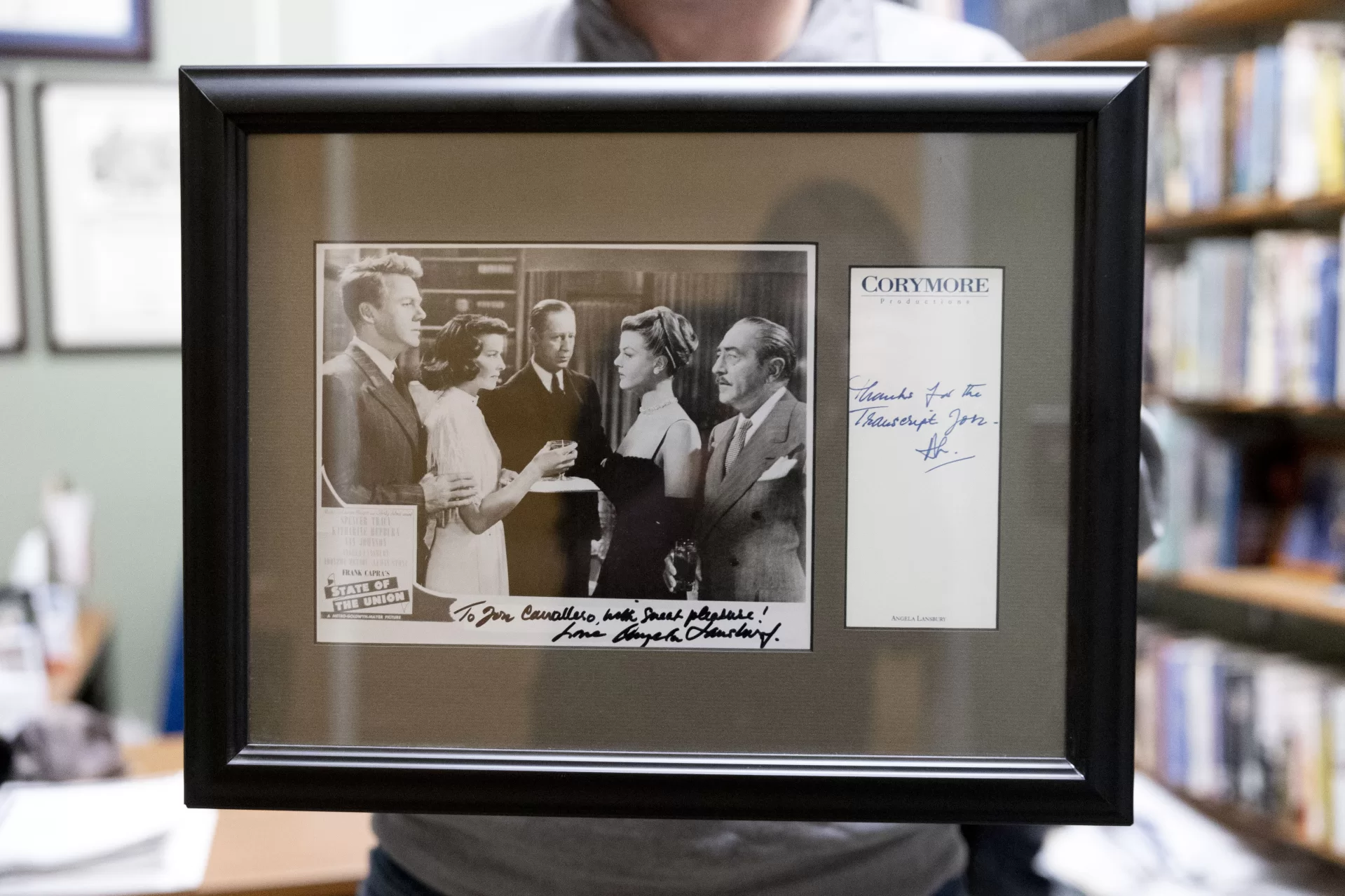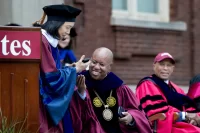
In the summer of 2001, I was three years out of college and beginning my graduate studies at Penn State, where I was working on a master’s thesis on Frank Capra.
I was looking to interview people who had worked with Capra, and Angela Lansbury was on my list. A friend of mine at the Writers Guild of America sent word to Ms. Lansbury that I would love to talk to her. To my amazement, she agreed.
One day I was at my apartment in State College and the landline rang.
“Hello,” I answered.
“Hello, Jon?”
“Yes.”
“This is Angela Lansbury,” said a very familiar voice.

So began a 45-minute conversation between someone with six Tonys (she had four at the time), 18 Emmy nominations, and three Oscar nominations (she received an honorary Oscar years later) and a 25-year-old kid whose publications amounted to exactly one book review.
I was a terrible interviewer. I came in with a list of questions that I was determined to ask no matter what.
During our conversation, so many opportunities presented themselves to go on tangents that might have yielded really fruitful insights, and time after time, I went back to my scripted questions, missing those opportunities.
Through it all, Ms. Lansbury was patient and generous with me. She never dodged a question. She peppered the conversation with laughs, and she worked to make me comfortable as she recounted various moments from her career and from her time working with Capra on State of the Union, in 1948.
At the end of the conversation, I thanked her for the interview. I figured she would reply, “You’re welcome,” and that would be that. Instead, she surprised me. She did say, “You’re welcome,” but added, “Good luck, and I think your students are very lucky to have the prospect of having you as a teacher and professor of this subject. So I hope it works for you and that you have a very happy and successful life.”

I’ve never forgotten those words. They were a gift to a novice teacher/scholar who was quite insecure about his abilities to actually pull off a career in this field, the most generous assessment anyone could have offered to me at that time in my career.
For it to come from Angela Lansbury of Murder She Wrote, of The Manchurian Candidate, of Gaslight, of Capra’s State of the Union was… incredible.
Rest in Peace, Ms. Lansbury, and thank you for the part you played in convincing me that this dream was possible.
About Jon Cavallero
Cavallero completed his master’s degree at Penn State, earned a Ph.D. at Indiana University, and is now an associate professor of film, rhetoric, and screen studies at Bates. Among his courses is “Film Festival Studies,” which produces the highly successful Bates Film Festival.
He is the author of Hollywood’s Italian American Filmmakers: Capra, Scorsese, Savoca, Coppola, and Tarantino, which was published by the University of Illinois Press in 2011.
Cavallero’s great grandparents immigrated to the U.S. with their families between 1910 and 1912. As a third-generation Italian American growing up in the suburbs of Washington, D.C., and Philadelphia, Cavallero often looked to the movies and television for a sense of cultural definition.


